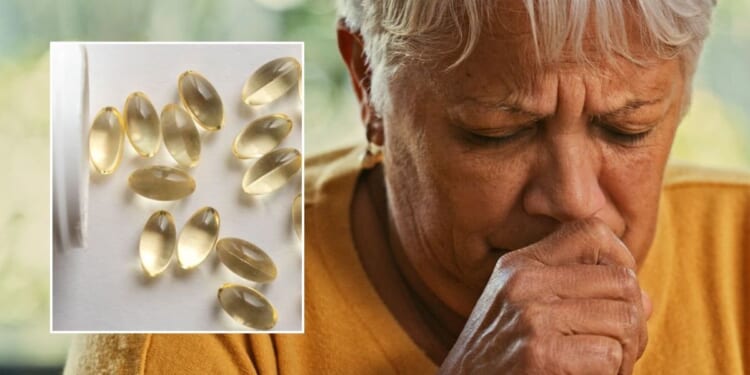Britons have been warned that vitamin D2 supplements might actually work against them after findings show the supplements can lower your body’s stores of vitamin D3 – the form we naturally make from sunlight and use most effectively.
The discovery from the University of Surrey couldn’t come at a more crucial time, as we enter the darker months between October and March, when UK residents can’t produce enough vitamin D from sunlight alone.
The government recommends we all take 10 micrograms of vitamin D daily during winter.
But this research suggests the type of supplement you choose really matters – and many people might be unknowingly choosing the less helpful option.

The findings could affect how the body fights off infections
|
GETTY
The research team examined data from multiple randomised controlled trials to understand what happens when people take vitamin D2.
They discovered that D2 supplementation actually caused vitamin D3 concentrations to drop compared to people who weren’t taking any supplements at all.
In fact, many studies showed vitamin D3 levels falling even lower than those in control groups who took nothing.
The study’s lead researcher from the University of Surrey, Emily Brown, explained: “We discovered that vitamin D2 supplements can actually decrease levels of vitamin D3 in the body, which is a previously unknown effect of taking these supplements.”
The findings appeared in the journal Nutrition Reviews, could have broader implications for our health, particularly when it comes to fighting off infections.
Professor Colin Smith from the University of Surrey found that vitamin D3 has unique immune-boosting properties that vitamin D2 simply doesn’t match.
“We have shown that vitamin D3, but not vitamin D2, appears to stimulate the type I interferon signalling system in the body — a key part of the immune system that provides a first line of defence against bacteria and viruses,” he said.
This means vitamin D3 could help stop viruses and bacteria from taking hold in your body, which is a crucial difference that makes choosing the right supplement even more important during the winter months.

Vitamin D3 supplements may be more beneficial for most individuals over vitamin D2
|
GETTYEmily Brown emphasised this point: “This study suggests that subject to personal considerations, vitamin D3 supplements may be more beneficial for most individuals over vitamin D2.”
There’s also a push to make plant-based vitamin D3 more widely available, with Professor Cathie Martin from the John Innes Centre noting that ensuring plant-based vitamin D3 is accessible in the UK should be a priority.
With vitamin D deficiency affecting so many Brits during winter, choosing the most effective supplement form could make a real difference to the nation’s health.
















